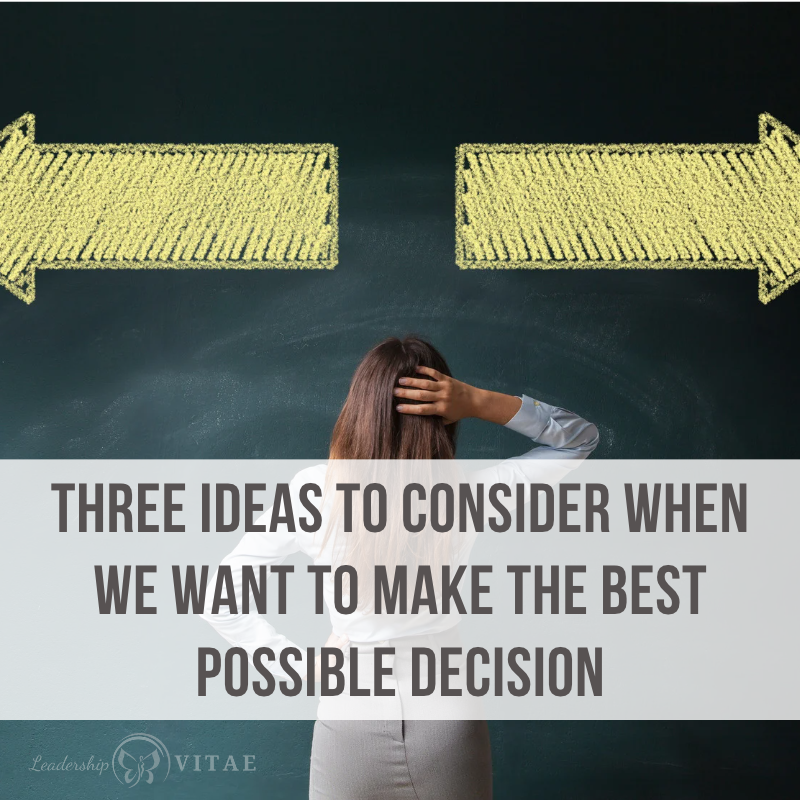
As I continue my passion for non-fiction and sharing the learnings, this month is focused on Sway by Ori and Rom Brafman. The title alone was enough to temp me…
Sway: The Irresistible Pull of Irrational Behavior.
I have to imagine that we have all experienced a moment where we have wondered at the decisions of those around us. Maybe we’re self-aware enough to look back at our own decisions and wonder “What was I thinking?”
They say hindsight is 20/20. And for those of us outside a decision, it can be really easy to throw shade.
The reality is that there are physiological and psychological factors that influence our decision-making. Including those poor decisions that we look back on and wish we could redo.
Whether its sunk cost fallacy, group think, or attachment to our first impressions – we are all at risk of making poor decisions that seem right in the moment. While the book highlighted many influences that get us to that irrational behavior, what stood out were the options to combating them.
There were significantly more in the book, three caught my eye. Though they are relevant to anyone, these should be in the back pocket of any leader finding themselves making or influencing decisions.
Look for the blockers
Years ago, I wrote an article on the 4 types of people we’ll meet in our career journeys. The evaluation was on alignment (are we coming at this from the same perspective) and intent (do they mean well). Blockers were those who did not share our perspective and had ill intention.
In Sway, blockers were those who are not aligned to our thinking, which include Blockers and Challengers from the 4 people model. According to the Brafmans, either or both can make us better.
Dissenters are critical to improved decisions. Having one dissenter in the room – even if they are WRONG – challenges the thinking of everyone else. They used the example of the Supreme Court to demonstrate how this works in practice.
Group think is a very real risk in discussions. Someone may disagree, but think the point is too minor or that it’s not worth arguing if everyone else agrees. When one person challenges a point, then it opens others to reveal their concerns as well.
In groups, we tend to value those that initiate ideas. The dissenters may frustrate us, but they make our decisions better and should be valued as well. Inviting challenge is critical for our best outcomes.
Walk out
Once we commit to a path, it becomes difficult to change direction. Not only do we get attached to our original decisions, we put more value on the lost time and money we’ve already invested than the gains we may receive from change.
There are many examples of this difficulty, but the most talked about one is probably Blockbuster. Their decision to stay the course on their business model and refuse to purchase Netflix will likely be MBA school fodder for another century.
Due to our frequent attachment to decisions we’ve made, a current leader may follow those decisions right off a cliff. That cliff may result in being replaced, assuming the company’s doors don’t shut in the meantime.
Ever seen a new leader come in and change org structures, cancel projects, and generally shake things up? Yeah…pretty much every time. A new leader brings a fresh perspective and doesn’t have the same attachment to decisions that have already been made.
What about the rest of us? If we don’t want to keep going down a bad path, we can simulate walking out. That’s right…we can pretend we ARE the new leader coming in.
Unsure about a current path? We can ask ourselves “If I left today, what would my replacement do?” If the new hire would cancel that project or shut down a product line, then it’s likely the right thing to do. We know the path…we just have to help ourselves let go of attachment and take it.
Beware the money
This one stood out due to personal experience and explained a LOT about some of the behaviors I’ve seen at senior levels of organizations. As well as validating concerns I have about my own career growth.
Altruism centers around concern for the wellbeing of others. Some are genuinely motivated by making other’s lives better, maybe through leadership, medicine, or working in non-profit.
In many cases, those that are driven by altruism will give of themselves without additional compensation or take a job with lower pay. Why? Because it triggers a certain part of the brain that responds to altruism.
According to the Brafmans compensation engages a different part of the brain. Once money is involved, then we tend to focus on fairness. That part of the brain wants to know that we are getting the right value in return for our efforts or rewarded properly for going above and beyond.
When we are making decisions, it’s important to be aware of the balance between altruism and compensation. Even the most human-centered altruist could show up very differently based on bonus or other monetary factors.
When at decision-making tables, be aware of the outcome intention and what factors may be influencing those in the room. If the outcome is to help others, big bonuses tied to the outcome could be a liability. Alternatively, if the outcome is about profitability, then it may not be an issue.
Decisions decisions
Sway was a fascinating look at our how our minds work, from justifying our actions to leading us in particular directions. No matter how sound we think our judgement is, we could all benefit from understanding the pitfalls of our physiology and psychology in our decision-making.
A new role is on my horizon and I’m thrilled for the opportunity to affect human-centered change at scale. The change has been a decade in the making – talk about sunk cost influencing decisions! It will be interesting to see how the move plays out in my life and career relative to what I learned in the book.
I’ll also be looking for opportunities to improve my decision-making and the decisions of the team I’m joining. As the new person, I’ll bring different perspectives to the table and remember to speak up so others are encouraged to do the same. If we don’t have any dissenters, I’ll have to remember to invite them to get to better outcomes.
Have you made any decisions that you look back and think “ouch”? What do you think influenced your decision and would have helped you make a different choice? Please share your thoughts in the comments to help others in their decision-making.








